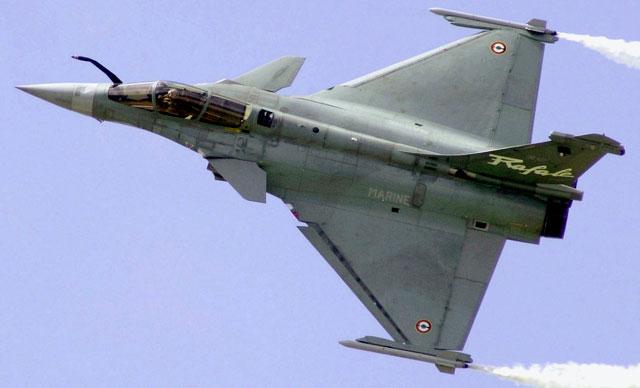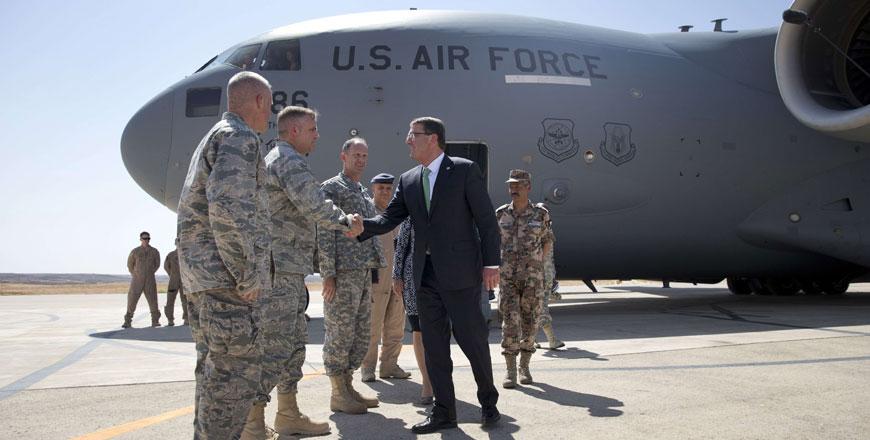You are here
US says political progress needed before more Iraq aid
By AP - Apr 21,2016 - Last updated at Apr 21,2016
RIYADH — President Barack Obama said Thursday that the US and its Gulf partners should wait to see whether Iraq can resolve its political crisis before committing more financial aid, arguing that the paralysis is impeding US-led efforts to defeat the Daesh terror group and reconstruct the war-torn country.
Closing out a brief trip to Saudi Arabia, Obama also warned that a fragile ceasefire in Syria is on the verge of collapse, but he offered few hints about any alternative US strategy if it does. He pledged vigilance about Iran and sought to allay Saudi concerns about its regional archrival, but he also told Arab Gulf leaders that last year's nuclear deal had made the region safer.
Obama's warning about Iraq appeared intended to pressure its leaders to put internal disputes aside so that a stable government can form. Yet it also reflected the limits of what Obama was able to achieve during a brief trip to Saudi Arabia. After meetings with officials from six Gulf countries, he left with little to announce by way of new commitments the US had requested.
"Right now in Baghdad, there's some big challenges," Obama said. "Until that's settled, I think it's important for us to make sure that any additional stabilisation dollars that we put in are going to be effectively spent."
Only a day earlier, US Defence Secretary Ash Carter had been urging fellow defence ministers from Gulf allies to step up their economic and political support for Iraq, appeals that Obama echoed in his own sessions with Saudi King Salman, the Emirati crown prince and others. Yet the region has been reluctant to invest more heavily until Iraq’s government makes more progress establishing stability and bringing Sunnis into the process.
Obama praised Iraqi Prime Minister Haider Al Abadi as a “good partner” for the US, and he noted that Iraq’s current political challenges don’t fall along traditional sectarian fault lines — Sunni, Shiite, Kurdish. Still, he said it was vital for Iraq’s health and stability to finalise a Cabinet so that Iraq can focus on profound long-term problems.
“They’ve got a lot on their plate,” Obama said. “Now is not the time for government gridlock or bickering.”
Already beset by corruption and a worsening financial crisis, Iraq’s government is in turmoil over a new lineup of Cabinet ministers that Abadi proposed last month after weeks of pressure from an influential Shiite cleric and rallies by thousands of his followers. The crisis shows no signs of quick resolution. On Tuesday, lawmakers failed to vote on the fate of the parliament speaker amid calls for Iraq’s top leadership to step down.
Earlier this week, the United States said it would deploy more than 200 additional troops to Iraq to help fight Daesh, and US Secretary of State John Kerry announced another $155 million in US aid for Iraq during a trip to Baghdad last week. The Obama administration has worked to strengthen Abadi, who is seen as a major improvement over his predecessor Nouri Al Maliki, and Obama said “ultimately it’s up to the Iraqis” to make decisions about their government.
The president spoke after holding talks in Riyadh with the Gulf Cooperation Council nations — Saudi Arabia, the United Arab Emirates, Qatar, Kuwait, Oman and Bahrain. The Gulf states have been deeply skeptical of Obama’s willingness to negotiate with Shiite powerhouse Iran, amid fears that the nuclear deal with the Islamic Republic will lead to a rebalancing of regional stances at their expense.
“None of our nations have an interest in conflict with Iran,” Obama said.
Obama said he believed Gulf countries had been heartened to see that the US was not overlooking Iran’s other destabilising activities in the Middle East, noting ongoing US efforts to interdict arms shipments to Houthi rebels in Yemen.
Obama’s hopes of winding down US military engagement in the Mideast have repeatedly been confounded by conflicts that have flared up in a number of countries struggling to contain extremists. Obama said the US would continue increasing security cooperation to address threats in Libya and support a fledgling UN-brokered unity government, while urging all parties to abide by a nascent cease-fire in Yemen, where a Saudi-led coalition is fighting on the side of an internationally recognised government against Shiite rebels and their allies.
Though many of the Mideast allies are participating in the US-led coalition against Daesh, they harbour serious doubts about Obama’s approach to resolving Syria’s long-running civil war, which has left President Bashar Assad in power to the dismay of Sunni leaders elsewhere in the Middle East. Obama conceded that the US and its Gulf partners often had “tactical differences” but said perceived strains are “overblown”.
Obama warned that a cease-fire in Syria that the US and Russia brokered was under “tremendous strain”, blaming Assad’s forces in part for what he said were repeated violations.
“It may be breaking down,” Obama said.
Related Articles
It struggled for years to sell its Rafale jets abroad but French defence group Dassault has finally scored several lucrative deals, thanks in part to anti-US suspicion in the Middle East, experts say.
AMMAN — US Defence Secretary Ashton Carter sought to reassure anxious Middle East allies Tuesday over the Iran nuclear deal during a regiona
New Saudi King Salman is expected to use President Barack Obama's stopover on Tuesday to push for greater US involvement in resolving Middle East crises, analysts say.













